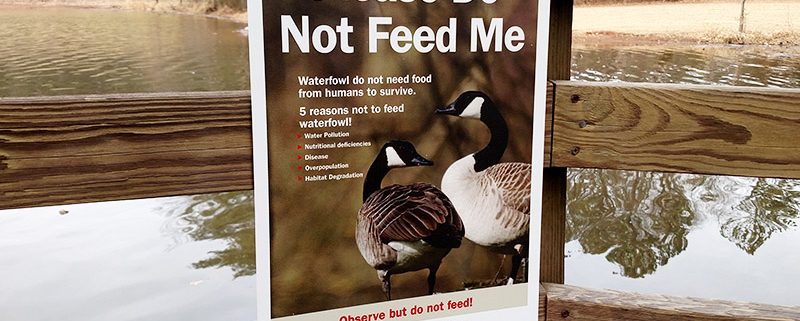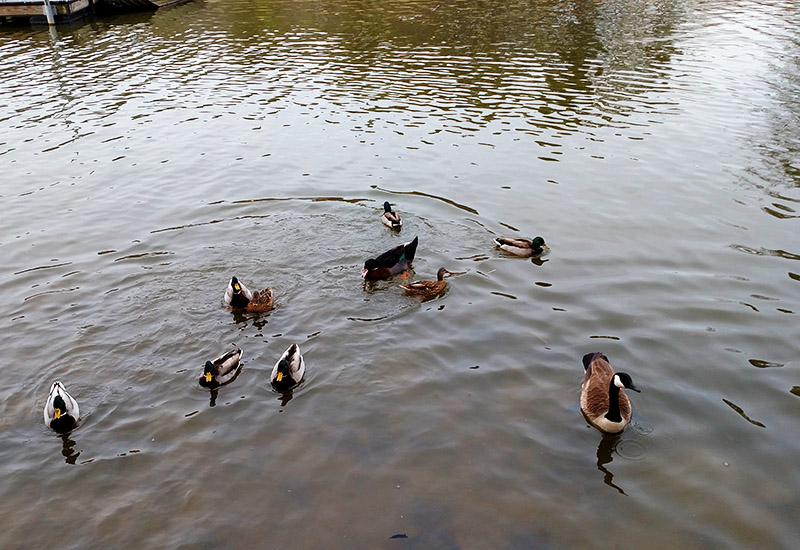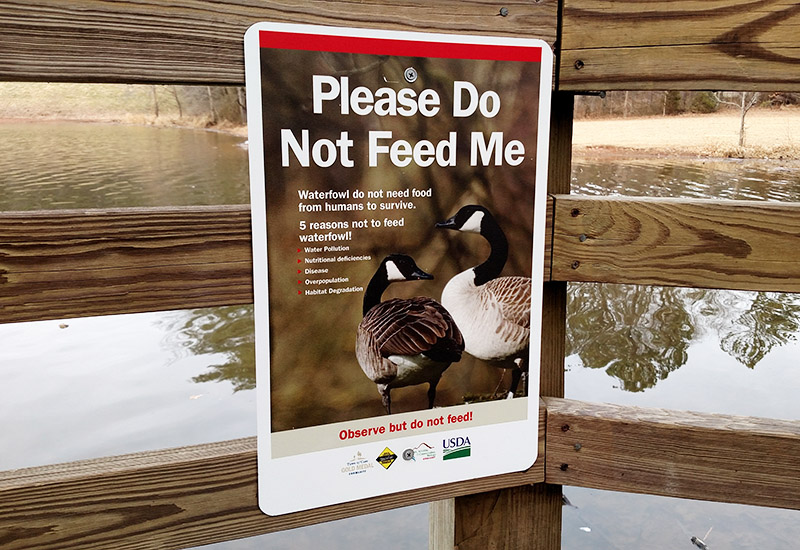New Public Signs Warn Against Feeding Lake Birds
Cary, NC – When ducks and geese are so close to the shore, people can feel tempted to feed them. But new signs at Cary parks are reminding visitors that feeding wildlife has a number of negative health and environmental impacts.
Problem with Poop
New signs up at Bond Park in Cary warn about the impacts of feeding birds there. Other Cary parks have similar warnings about feeding wildlife but Bond Park is the only one with these specific signs because of its unique waterfront that allows more close contact between humans and birds.
One of the biggest concerns is what comes out of a bird once they’ve been fed.
“When you feed the birds, you concentrate them in one spot and when you concentrate birds, they poop,” said Mark Johns, environmental operations and program supervisor at the Stevens Nature Center. “When all these birds are gathered, you can have fecal contamination. If one bird is sick, now those birds are grouped together and it spreads the disease.”
Having large concentrations of birds pooping in one area can elevate fecal coliform bacteria. This will not only get ducks and geese sick but it can result in human diseases such as salmonella.
“If you go fishing, it can be easy to stomp through that fecal material and then when you get home, it can spread from your boots to your hands and mouth,” Johns said. “Or if you’re wearing crocs or sandals, a little bit can splash under your toenail and stay there for a very long time. Fecal coliform invariably comes up.”
Bond Park’s Senior Operations and Program Supervisor Sam Trogdon said this problem can be exacerbated by the kinds of foods people often feed to waterfowl.
“Bread is not part of a bird’s diet so it just gives them diarrhea,” Trogdon said.
While both Trogdon and Johns said people should not be feeding these birds anything, feeding birds unhealthy diets results in malnourished birds that are now competing for food in a more crowded area, all while potential diseases such as avian cholera and botulism can be spread around.
Changing the Local Ecosystem
Even aside from the disease and water pollution caused by a concentration of poop in select areas, the new signs warn about other reasons for not feeding birds. For one, having so many birds gathered in one area can damage the environment.
“If you’re feeding the birds on the shoreline, they stomp it down into mud,” Johns said. “That’s why it degrades the environment.”
Also, feeding birds can lead to overpopulation at a particular park or lake. Not only does this strain the ecosystem but increases the chance of humans and birds making contact and geese in particular can cause serious injury to a person.
“Thankfully, we haven’t had a goose attack yet but we want to minimize the chance for interactions between people and geese,” Trogdon said. “With larger numbers of geese concentrating, that becomes more likely.”
Also, at Bond Park in particular with its docks and walkways, having more birds means more bird poop on these facilities, which means more time and effort put into cleaning it up.
“Unfortunately, we still see visitors trying to feed the birds, and sometimes feeding right in front of the warning signs by the water,” Trogdon said.
While these tips refer to birds, both Johns and Trogdon warned people to never feed wildlife they encounter.
“It never goes well and has a high potential for injury or disease,” Johns said. “Only feed an animal in a petting zoo.”
Story and photos by Michael Papich.






